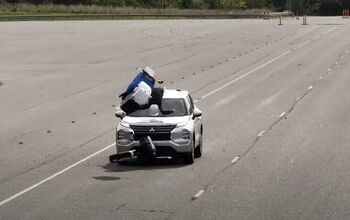Tesla Owners' Class-Action Suit Gets Green Light from a California Judge

Electric vehicles don’t require the same routine maintenance that gas models do, but they’re not completely repair-free. Tesla has made getting repairs a real headache for some owners, as the automaker hasn’t allowed them to get work done at third-party shops. That policy has led owners to seek class-action status against the company, and a California judge recently gave the group the green light to move forward with a suit.
Tesla generated $8.3 billion in service revenues last year, a significant chunk of its almost $97 billion in overall revenue, due to its requirements that owners service vehicles at one of its shops. The owners were under threat of having their warranties canceled if they chose to pursue third-party repairs.
The judge heard arguments that Tesla vehicles contain proprietary components and software that only it can service, but they also learned that the automaker failed to open enough locations to handle the repair demand. Tesla also prohibits parts from reaching independent shops, making it impossible to repair one even if the ban on external service was lifted.
While most owners would head to a third-party shop, those issues mean that even out-of-warranty Teslas can’t be serviced independently. The judge initially rebuffed the group’s class-action efforts late last year, but newer developments in the case have convinced them to allow the case to move forward.
Right-to-repair is a hot-button issue across several industries, with companies of all types pushing back hard against efforts to allow owners to either DIY a repair or have a product serviced by a third party. If you own a vehicle, you should be able to fix it yourself or have the repairs performed by the shop of your choice, so this lawsuit moving forward is a positive step toward fixing the situation for Tesla owners.
[Images: Tesla]
Become a TTAC insider. Get the latest news, features, TTAC takes, and everything else that gets to the truth about cars first by subscribing to our newsletter.

Chris grew up in, under, and around cars, but took the long way around to becoming an automotive writer. After a career in technology consulting and a trip through business school, Chris began writing about the automotive industry as a way to reconnect with his passion and get behind the wheel of a new car every week. He focuses on taking complex industry stories and making them digestible by any reader. Just don’t expect him to stay away from high-mileage Porsches.
More by Chris Teague
Latest Car Reviews
Read moreLatest Product Reviews
Read moreRecent Comments
- Chiefmonkey ...and just like that, the fugly grille club got bigger!
- Tassos ASK ME IF I CARE!answer: yes I really do, TTAC is all i have going for me these day. Real tassos is very unfulfilled and regressing quickly due to it.
- Lou_BC With a name like that, Tassos will be aroused.
- Bd2 Well his ATP is good then.
- SCE to AUX The affordable Venue sells ~28k/year in the US market. At best, that's the kind of volume this EV would see.By the way, that 220 mile range is on the European WLTP cycle with the Long Range battery, so figure 185 miles EPA. The 'affordable' version is likely the 42 kWh battery, so figure 160 miles EPA for that.But time has proven that Americans don't want short-range EVs, and are willing to pay more for more.



































Comments
Join the conversation
I have been assured that EVs don’t require maintenance, so this seems pointless.
I get the point that Musk is making. I wouldn't want everyone to know my secrets. If they did, they could or would shout it out to the world. But then, if Musk certified certain folks and had them sign Confidentiality agreements, which would allow them to work on cars that Musk had made, that could allow others to work on his cars and not confine vehicle owners to be charged an arm and a leg for the service. It's a catch 22. People are greedy little buggers. If they can find a way to make money, they will even if it wrong. People...sad.